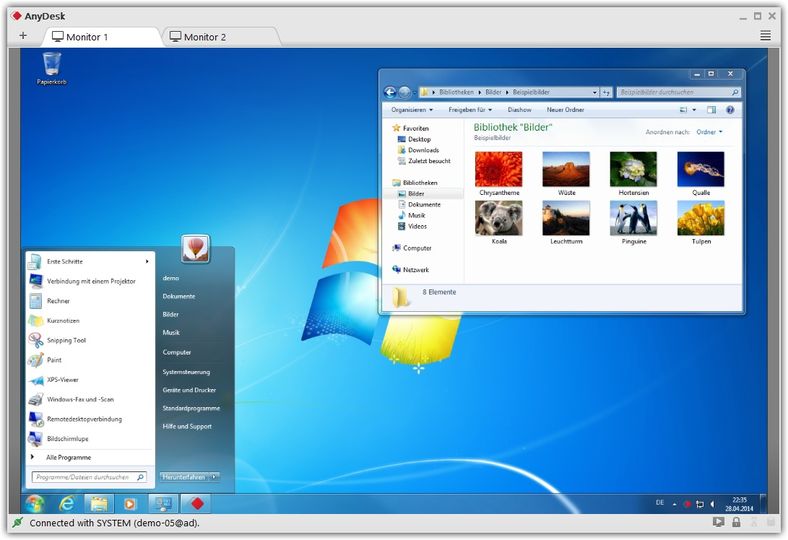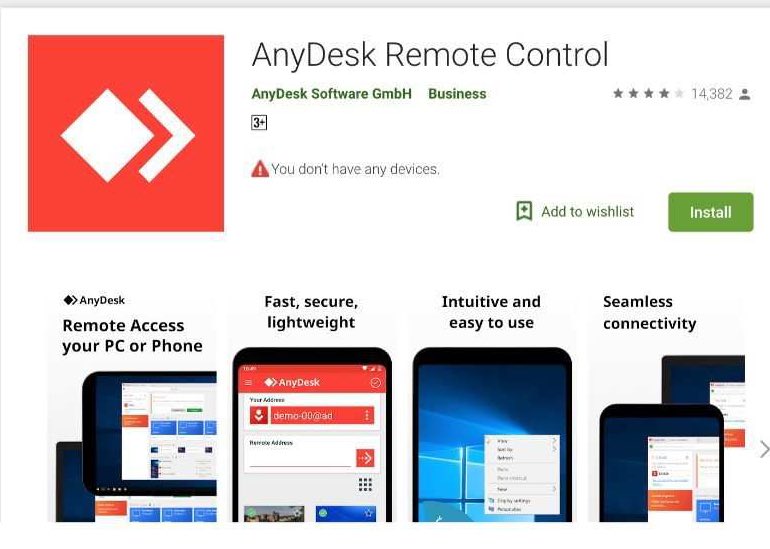

A case was registered at the Warje Malwadi police station on June 1. A man, 79, from Warje Malwadi was duped of Rs1 lakh in a credit card fraud after the accused managed to acquire his credentials while tracking a courier sent by the complainant. The elderly in and around the city however, who find it difficult navigating new technology without guidance, are proving to be soft targets for fraudsters.

A lot of companies have found it to be problematic.”
#ANYDESK ONLINE ACCESS CODE#
There is a code on the screen which, upon sharing, gives complete access to your screen. An IT professional, 30, who did not wish to be identified, said, “Most companies have consciously decided not to use AnyDesk as it is highly unreliable.

Even if you do use screen-sharing, do not share the screen with unidentified people.”ĭue to the risk associated with these applications, many companies are avoiding using them.
#ANYDESK ONLINE ACCESS DOWNLOAD#
Do not click on unknown links or download applications unless they are sent by people well known to you. Thereafter you can start your presentation and everything you do on your phone will be visible to your guest.”īhagyashree Navatake, deputy commissioner of police, cybercrime cell, warned, “The methods to protect yourself from such attacks are to format your systems regularly. Make sure that you trust the person contacting you and only then accept the request. While individual amounts are always small compared to other methods of hacking, given the number of such cases, the collective amount is substantial.”Įven the website of one of these screen-sharing applications states, “With your first session request, you will also receive a security message urging you not to grant access to anyone you don’t know. Since these applications are most of the time used to steal card data and misuse it, it gets registered as bank and card frauds. These applications can be used by the same person for multiple personal devices owned or for remotely accessing other appliances including mobile phones, laptops and desktops.Īccording to Vidya Jadhav, police inspector of Unit 2 of the cybercrime cell of Pune police, “These applications are generally used under the guise of know-your-customer (KYC) fraud or updating SIM and ATM cards so people tend to grant access easily.”Īn official of the cybercrime cell who records data for the cell said, “Every single day of this year, we have had at least one or two cases of remote sharing applications used for stealing money. The two screen-sharing applications most widely used by fraudsters to steal money from people online are AnyDesk and Teamviewer Quicksupport, according to officials of the cybercrime cell of Pune city police. PUNE: An increasing number of people are falling prey to online theft using screen-sharing applications that allow remote access to mobile and computer devices.


 0 kommentar(er)
0 kommentar(er)
